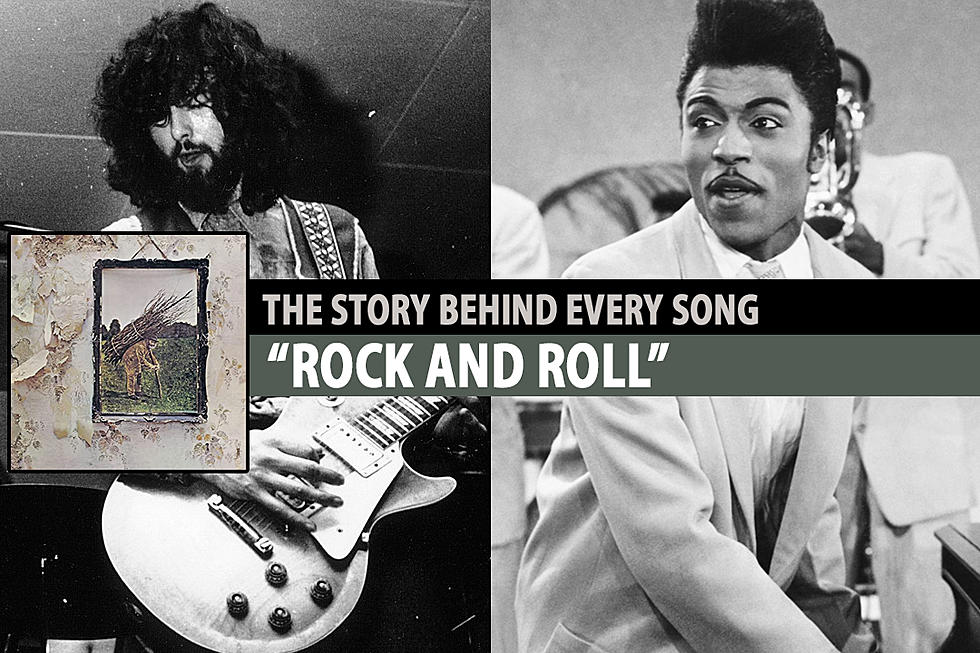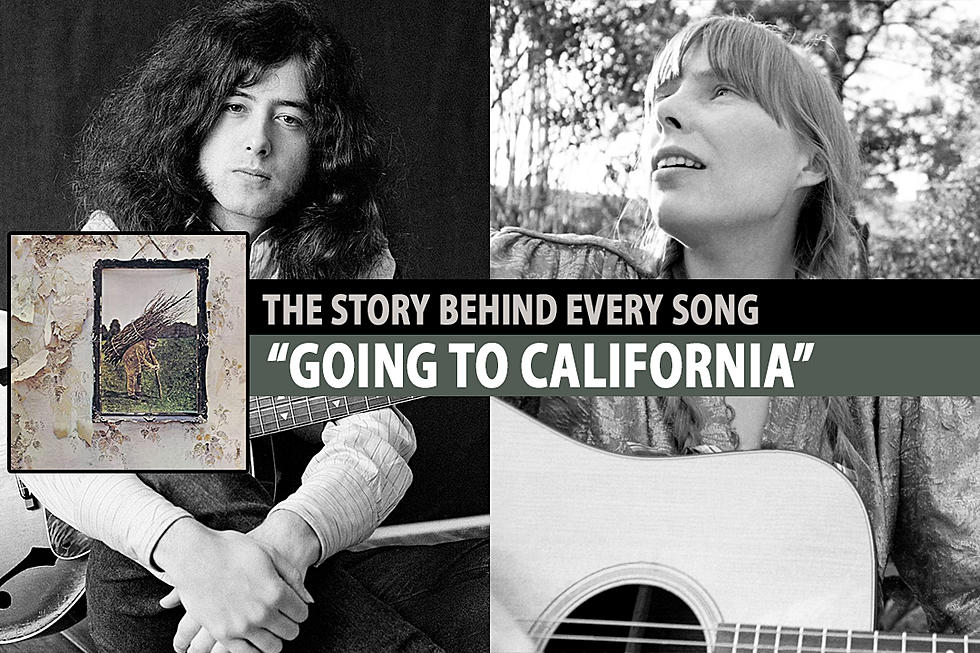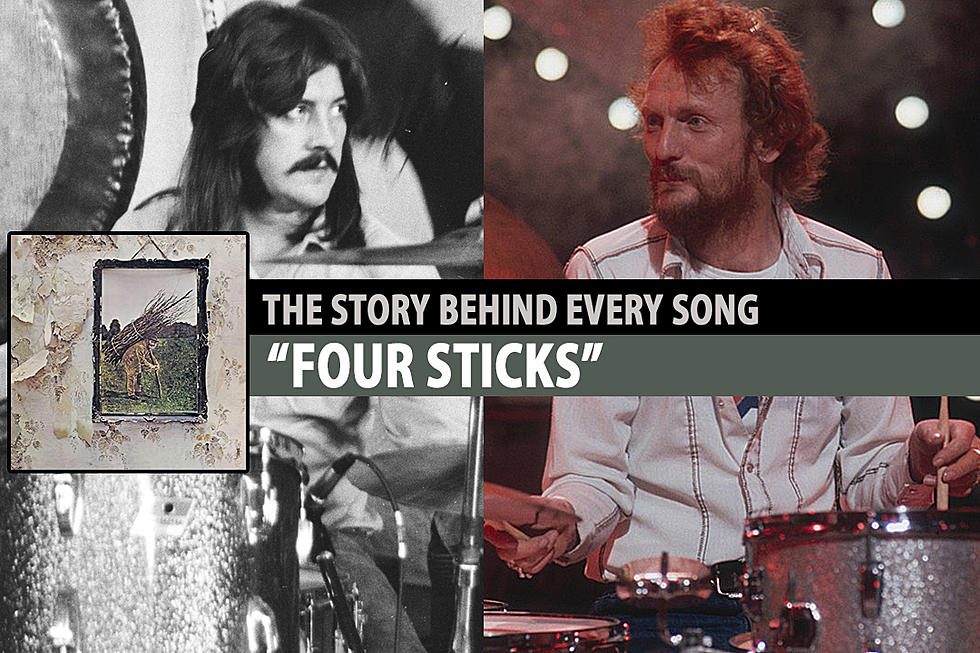
How a Little Richard Song Inspired Led Zeppelin’s ‘Rock and Roll’
If you trace the influences of various rock 'n' roll bands through the '60s and '70s, most roots will lead back to Little Richard. Led Zeppelin was no exception.
"My preoccupation as a very young early teenager was a music form that I might have missed. ... If I had missed it, I would never have sung," Robert Plant said in 2015. As a teen in the British Midlands, he spent countless hours discovering music being made in the U.S. "If I hadn't heard the Howlin' Wolf, Robert Johnson, Little Richard music, I wouldn't have been drawn to music. Most of the music we [in England] were surrounded by was slush, without any commitment. ... I was born again and saved and reincarnated by American music."
Plant wasn't alone. All four members of Led Zeppelin was enthralled by Little Richard's electrifying music style and stage persona. Even the instruments surrounding Little Richard had a certain irresistible charm. Bassist John Paul Jones snagged a very special Gibson "violin" bass he used on Led Zeppelin III. "The one I have went through Little Richard’s band, then through James Brown’s band before arriving in England," Jones said. "In fact, I saw it on an old movie clip of Little Richard.”
In 1971, as the band prepped its fourth album, Led Zeppelin IV, in 1971, it hit a roadblock while working on "Four Sticks." Frustrated, they decided to leave the song alone for a while. "If the track isn't happening and it starts creating a psychological barrier, even after an hour or two, then you should stop and do something else - go to the pub or a restaurant or something," guitarist Jimmy Page said in the 2012 book Light & Shade: Conversations With Jimmy Page. "Or play another song."
Drummer John Bonham opted for the latter. He spontaneously broke into the opening drum bit of the Little Richard song "Keep a Knockin'." Page fell into the groove next on his 1959 Les Paul, playing an old-school, Chuck Berry-style riff. Jones and Plant also chimed in with off-the-cuff ideas. "Stop," Page recalled saying. "Let's work on this."
Listen to Little Richard's 'Keep a Knockin''
"It actually ground to a halt after about 12 bars," Page said in 1977. "But it was enough to know that there was enough of a number there to keep working on it."
Within about a half hour, the bones of the new song were intact, with the shuffling drum intro still in place. "That's how it was going back then," Page recalled. "If something felt right, we didn't question it. If something really magical is coming through, then you follow it. It was all part of the process. We had to explore, we had to delve. We tried to take advantage of everything that was being offered to us."
One of those offerings came in the form of Ian Stewart, the Rolling Stones keyboardist who was on hand in case of any mechanical issues with the band's Mobile Studio, which Led Zeppelin was using to record at their country house in England, Headley Grange. Stewart stepped in for Jones, who usually played piano on Zeppelin records, and his boogie-woogie 16th-note rhythm — similar to the one heard in Little Richard's "Keep a Knockin'" — cut through Bonham's heavy cymbals and Page's dirty guitar riff just enough. "When you have the chance to use a master at a specific style," Page said, "you just step back and enjoy what comes out."
Watch Led Zeppelin Perform 'Rock and Roll'
The lyrics Plant added also paid tribute to '50s rock 'n' roll. "It's been a long time since I did the stroll," Plant sings, referencing the dance and song "The Stroll." Later he sings, "It's been a long time since the book of love," a nod to the Monotones' 1958 doo-wop hit "Book of Love."
Led Zeppelin's new song was originally called "It's Been a Long Time" but was eventually changed to the more straightforward "Rock and Roll." It's the second song on Side One of the 1971 classic Led Zeppelin IV. Some critics accused Zeppelin of leaning too heavily on acoustic folk music on their previous album, Led Zeppelin III. "Rock and Roll" was their defiant reply.
"We just thought rock 'n' roll needed to be taken on again," Plant told Creem in 1988. "I was finally in a really successful band, and we felt it was time for actually kicking ass. It wasn't an intellectual thing, 'cause we didn't have time for that – we just wanted to let it all come flooding out. It was a very animal thing, a hellishly powerful thing, what we were doing."
Rejected Original Titles of 30 Classic Albums
Denis Leary Doesn't Understand Why Led Zeppelin Won't Reunite
More From Classic Rock 105.1










